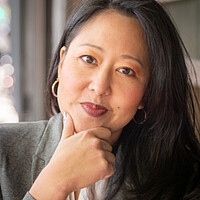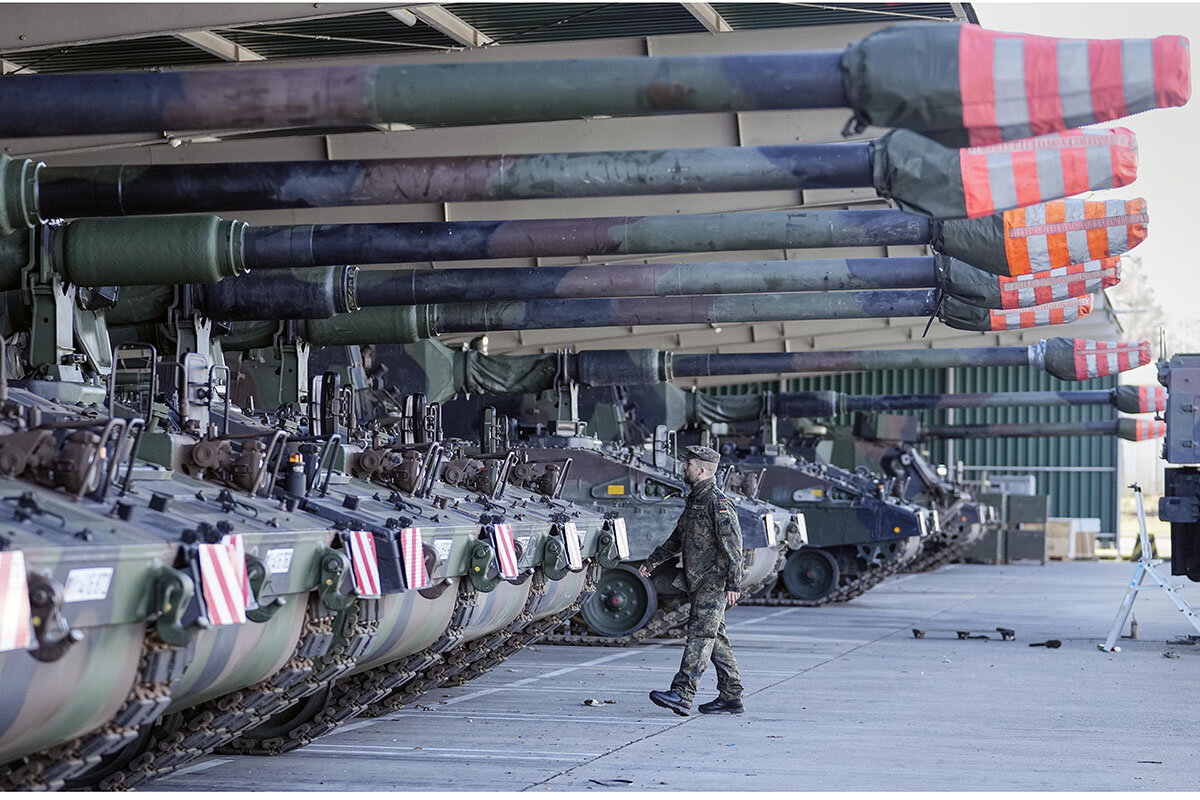Ukraine war shows need for Germany to rearm. But is it ready?
Loading...
| Berlin
Roderich Kiesewetter says he could “smell” the decline in the German military. “You could feel it in the fingers,” says the former German battalion commander.
The German military’s “readiness” factor was at 90% when Mr. Kiesewetter launched his career nearly three decades ago. That deteriorated to somewhere between 20% and 60% by the time he retired from active service.
‚ÄúThat means if you need 150 aircraft, only 37 are ready to be deployed. Or you have a weapons system with 100 pieces that has only 20 working,‚Äù says Mr. Kiesewetter, who now serves in parliament as a member of the conservative ∫£Ω«¥Û…Ò Democratic Union. ‚ÄúIt is not acceptable. But I‚Äôm very optimistic that [now] we‚Äôre on the right path.‚Äù
Why We Wrote This
Germany’s stringent pacifist streak has led to a dramatic deterioration of its military. The Ukraine war appears to be changing that – a potentially crucial shift for European security.
German Chancellor Olaf Scholz clarified that ‚Äúright path‚Äù shortly after Russia‚Äôs invasion of Ukraine, by pledging a ‚Ǩ100 billion ($104 billion) infusion into the German military and promising to finally meet NATO members‚Äô defense spending goal of 2% of gross domestic product. In sum, Germany would rearm after decades of intentionally putting its military on the back burner. Mr. Scholz called the change a zeitenwende, or¬Ýhistorical turning point, for Germany.¬Ý
Most analysts contend German rearmament is crucial, not only to peace across Europe, but also throughout the globe. Europe‚Äôs largest economy also shepherding a strong military would help spread the work of preserving the Western democratic order across allies, they say. The challenge may lie less in changing European minds about a German military¬Ý‚Äì as even former enemies now seem warm to the idea¬Ý‚Äì than in convincing Germans themselves to make the changes needed, both strategic and philosophical, for the transition to stick.
“If Germany’s zeitenwende is successful, it could be the most consequential change in European security architecture and thinking in a few generations at least,” says Michal Baranowski, director of the Warsaw, Poland, office of the German Marshall Fund. “That will allow for the Americans to remain a European power but to refocus on Asia ... in our common challenge between the democratic West and the autocrats led by China and Russia. And then, I think we have a really decent chance to win this together.”
A reluctant power
How other European countries have viewed Germany‚Äôs position at the European Union‚Äôs center of gravity has generally varied with the issue at hand. The Greeks were¬Ýdisappointed with Germany‚Äôs handling¬Ýof the eurozone crisis, for example, while Danes¬Ýdidn‚Äôt like its approach to migration.
On defense, however, European allies have been nearly universally frustrated with Germany. Berlin has been ploddingly reluctant to fund its military and beef up defense spending, ignoring what analysts have dubbed its responsibility to fund a military that matches German economic power.
That Europe-wide frustration is relatively recent, as neighbors have shuddered for decades over the memory of Hitler’s armies marching through the Continent. “We shouldn’t forget that for a long time, a very strong German army in the middle of Europe did not make people across Europe feel safer,” says Franziska Brantner, a Greens party member of parliament.
Indeed, Germany’s postwar reckoning following the Nazi era was about reeducation and transition out of fascism, and beset by guilt around the country’s role in the Holocaust and the deaths of more than 20 million Soviet people.
But Germany under Angela Merkel¬Ý, multiple polls have found, due to her ability to search for compromise, and her steady hand. That‚Äôs resulted in a positive image of Berlin.
Yet, still, Germans were reluctant to rearm. They bought into this idea that “everyone would converge on the same liberal democratic market, capitalist-based model of society,” says Rafael Loss, a global security expert with the European Council on Foreign Relations. “It took a long time for anyone in Germany to realize that Russia and China and other countries didn’t really buy into this idea.”
France got to that realization much faster. President Emmanuel Macron has been of the belief that NATO might fail, thus requiring Europe to guarantee its own security. Meanwhile, Eastern European allies have long wanted Germany to take a larger stake in securing the Continent. The Polish foreign minister famously declared in 2011, “I fear German power less than I am beginning to fear German inactivity.” Made in the context of Germany’s role in the eurozone crisis, the Polish official’s quote has nevertheless been applied to German reluctance to take leadership befitting the size, influence, and economic power of the country.
Now, with Russia‚Äôs invasion of Ukraine, most Germans¬Ý¬Ýwith the idea of the need for a strong military: Sixty-seven percent support the ‚Ǩ100 billion infusion.
With the events in Ukraine, there’s a “shift that people understand,” says Mr. Kiesewetter, the battalion commander turned lawmaker. “You only can gain and keep freedom if you defend it credibly, and if you also offer those who lose or are beginning to lose, like Ukraine, support with weapons and military means.”
A credible power?
Yet will Germany simply be throwing money at a problem, rather than shifting its mentality?
Chancellor Scholz himself has stirred controversy by indicating that he didn’t want to make “mistakes” similar to those of Germany’s kaiser back in the 1910s, which led the country and Europe toward World War I. There was internal parliamentary discussion over whether Germany should send heavy weapons to Ukraine, and Mr. Scholz at one point said sending too much would make it difficult for Germany to meet its own NATO obligations. Later, he said the military spending would send “an unmistakable message to our allies: You can rely on Germany!”
It’s a confusing waffling, indeed, that Polish President Andrzej Duda has picked up on, accusing Germany of breaking its promise to replace tanks that Poland has sent to Ukraine. “The mood here [in Poland] is very critical” of Berlin, says Mr. Baranowski of the German Marshall Fund. “Germany’s just not a credible power, because it has been moving so slowly. The focus in Poland is so much about what the U.S. and Great Britain are doing.”
All that has led to a feeling of uncertainty over not only whether, but also how fast, Germany can get its military up to speed. A lack of security culture cannot be reversed overnight, say analysts. Procurement contracts will take time to negotiate, and domestic factories take time to ramp up. Spending €100 billion is a multiyear process.
Also unclear is whether Germans have really committed to change, or simply entered a “bunker-type mentality” in which they’re waiting for Russians to end the war and the status quo to return, says Mr. Loss.
“[Mr. Scholz’s policy change was] more of a technocratic fix to some of the problems that plague German foreign policy, but really hasn’t been accompanied by a shift in awareness for the need to establish some kind of intellectual capability that would make Germany more equipped to fulfill its leadership potential in a world where the political West is increasingly put under pressure by Russia, by China,” says Mr. Loss. “A lot of countries in Europe are really longing for Berlin to take charge here.”
In other words, €100 billion for some more tanks is simply ... more tanks, he says. It’s not automatically a coherent strategy.
A power at a crossroads
For now, the rest of Europe including France seems thrilled. A more powerful Europe would offer the Continent “the right political and geopolitical shape,” said Mr. Macron in a speech delivered in Berlin in May. “Germany has just made far-reaching decisions that I expressly welcome.”
“It’s right we should build up our defenses together [with Europe], and not just do it in a national way,” says Ms. Brantner, the German parliamentarian. “It’s an important value for partnership.”
Should Germany fail to deliver on its military turnaround, what Mr. Baranowski calls his nightmare scenario might ensue. “If both zeitenwende fails and the U.S. has to focus on Asia, and then we are basically in a situation that gives Russia a chance to rebuild its power and forces – but this time push beyond Ukraine.”






